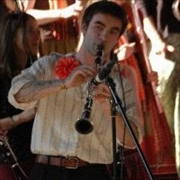Tutor HuntResources Music Theory Resources
Why Are You Listening With Your Eyes?
An Introduction To Improvisational Concepts
Date : 28/06/2013
Author Information

Uploaded by : Liam
Uploaded on : 28/06/2013
Subject : Music Theory
For centuries, Western classical music has taught students how to read the lines and dots of the page, compose large and complex arrangements of counter-crossing melodies, bass-lines and harmonies and has been appreciated by people from around the world. But how many of these musicians have seriously explored what has come before the written page? Before the arrival of monotheistic religion, these instruments we play have deep roots in the reed-beds of the Nile and the bowstrings of long-dead African tribesmen.
Would you teach a child to read before he can speak? So why was I given sheet music alongside my clarinet? I could not express myself, I could only feel the burning frustration of a sort of illiteracy, that I was continually on the backfoot and worst of all, I was doing it wrong. Please! Hear me now! Music wrong? How could this be possible?
At one time, language and music would have been one and the same thing: a vehicle for our emotions and a vessel for passing on knowledge. In the world of our ancient ancestors, the only instruments available to us would have been the voice, the feet and the hands. It is from here that anybody could begin an interesting and alternative sound-journey.
No actor would bring his scri pt onto the stage with him and indeed any good story-teller knows that learning from the spoken word is far more valuable than learning from a page. So if we use our ears to hear music then why would we use our eyes to learn it? In replacing our ears with our eyes, we neglect our aural perceptions and in return we become terrible improvisers with a malnourished sense of musical freedom. Indeed the word `improvisation` implies that there is something to be improved upon and this leaves no conceptual space for creating something unique. I much prefer the term: `solo`.
The fact of the matter is that one should learn how to listen, then how to play and then how to write music before ever attempting to read it. This re-lives the natural process of evolution and one should prioritise being able to use their ears and body to understand and re-produce melodic-phrases and rhythmic-patterns. We stand now at the pinnacle of musical evolution and yet make no attempt to understand where this complexity came from.
The fact is that we just do not need to read music to play it, and for a youngster it will become a crutch to a weakness and will keep them cripples forever, unable to improvise or think outside of the Western musical monopoly that so offends me by creating a national anthem for every nation with no regard for the musical traditions of the indigineous peoples.
This resource was uploaded by: Liam
